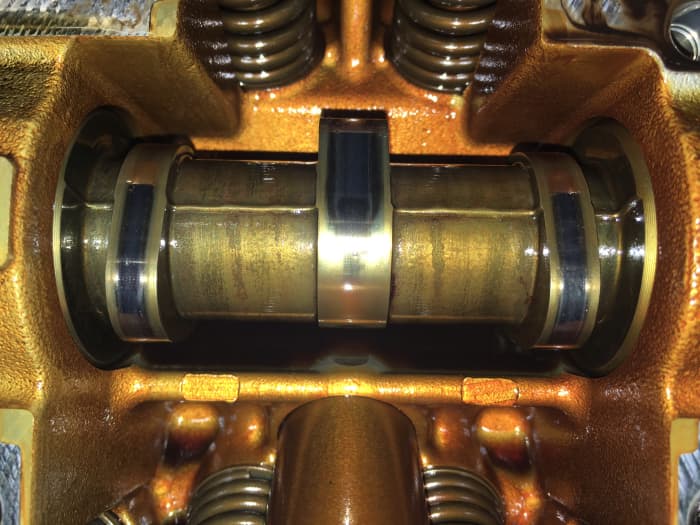

Have regular inspections done to check for other issues that might be affecting your timing belt? For example, if the tensioner is adjusted too much or worn out, this could also lead to timing problems.Get this fixed immediately because waiting only makes the problem worse in this case. If you hear a “grinding” or “squealing” noise while accelerating or decelerating, that could be a sign that it's time to replace your timing belt before further damage is done.If something seems off, get it checked out by a mechanic right away. The inside of your engine will sound like it's knocking every time you accelerate or decelerate, so listen closely to the way your engine sounds when you start up your car in the morning. Keep an eye out for worn teeth on the timing belt, and get them replaced immediately if you see any sign of wear.The manufacturers will tell you how much to adjust the tensioner, but this can differ for different vehicles based on their make and model, so make sure you know what's best for your car. Maintain proper tensioner pressure by regularly adjusting it.Changing your timing belt regularly is the best way to avoid noise issues.
#TIMING BELT TENSIONER KNOCKING NOISE HOW TO#
How to prevent Timing Belt Noise?Īlthough most of the mentioned causes for timing belt noise might look nonpreventable, there are some ways to delay or prevent timing belt noise, including: This will cause a thumping sound every time the engine spins.Ī misaligned timing belt causes a rhythmic thumping noise that gets louder as the car's RPMs increase. If your timing belt is misaligned, it can snap or become loose over time. If your tensioner pulley becomes too loose or worn out, your timing belt can become loose and create timing problems: This usually causes a ticking noise rather than anything else.Ī loose or worn-out tensioner pulley causes a ticking noise. The tensioner pulley is a cog that puts pressure on the timing belt, allowing it to stretch and contract as necessary. This will cause a tapping noise every time you accelerate or decelerate, and it can also lead to a broken timing belt.Ī loose timing belt causes a rhythmic clicking sound that gets louder as the car's RPMs increase. If your timing belt becomes loose, the engine could end up with too much slack in it. This is another noise that gets louder as your RPMs increase.Ī worn-out timing belt causes a low-pitched humming noise that lasts for several minutes. As a result, the inside of your engine will sound like it's knocking every time you accelerate or decelerate, and this noise can last for several minutes. When the timing belt is worn out, the teeth on its inside part begin to wear down. Your car's timing belt is stretched or broken if it makes any of these noises when you start up your engine, even if the noise goes away after a few seconds: If you hear this sound, pull over immediately and shut off your engine, but don't attempt to move the car until you're sure it won't cause further damage. Once this happens, major damage can be done to your pistons and engine block, and the odds of your engine seizing go way up.Ī broken timing belt usually accompanies a loud, high-pitched grinding noise that gets louder as the car's RPMs increase. If your car's timing belt snaps, you need to replace it as soon as possible – even if you don't hear a noise – because the valves won't open and close at their proper times. This is the most serious and expensive cause of timing belt noise. Your timing belt may be worn out or stretched due to normal wear and tear, but it could also be because of one of these five common issues: 1) Broken timing belt When the timing belt starts making weird noises, it usually means that something is wrong.

This is exactly what happens inside your engine when your timing belt stretches too tight or breaks unexpectedly: The teeth on one side of the belt hit the teeth of another part inside your engine, resulting in that “twang” sound. If you've ever stretched a rubber band and released it, you know that it makes a “twang” sound. Think of your timing belt as a very long rubber band that wraps around the main parts of your car's engine.


 0 kommentar(er)
0 kommentar(er)
